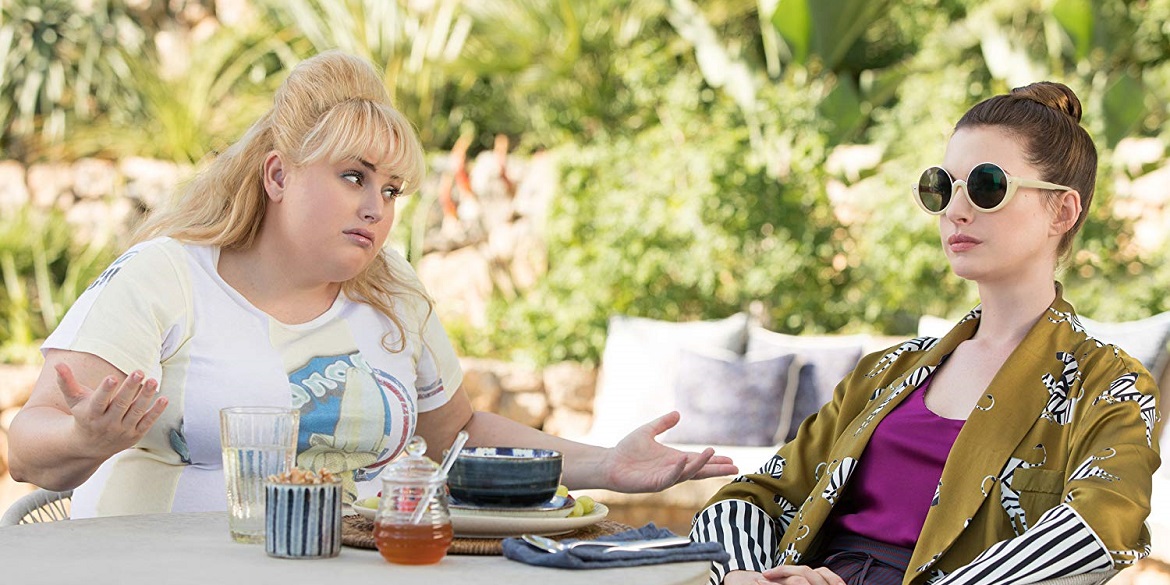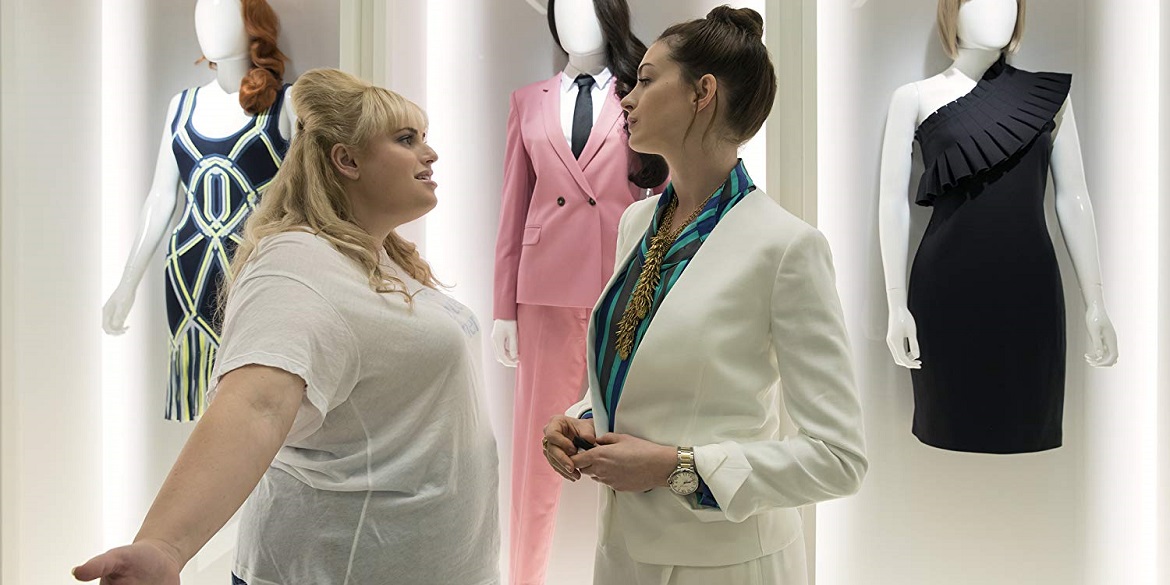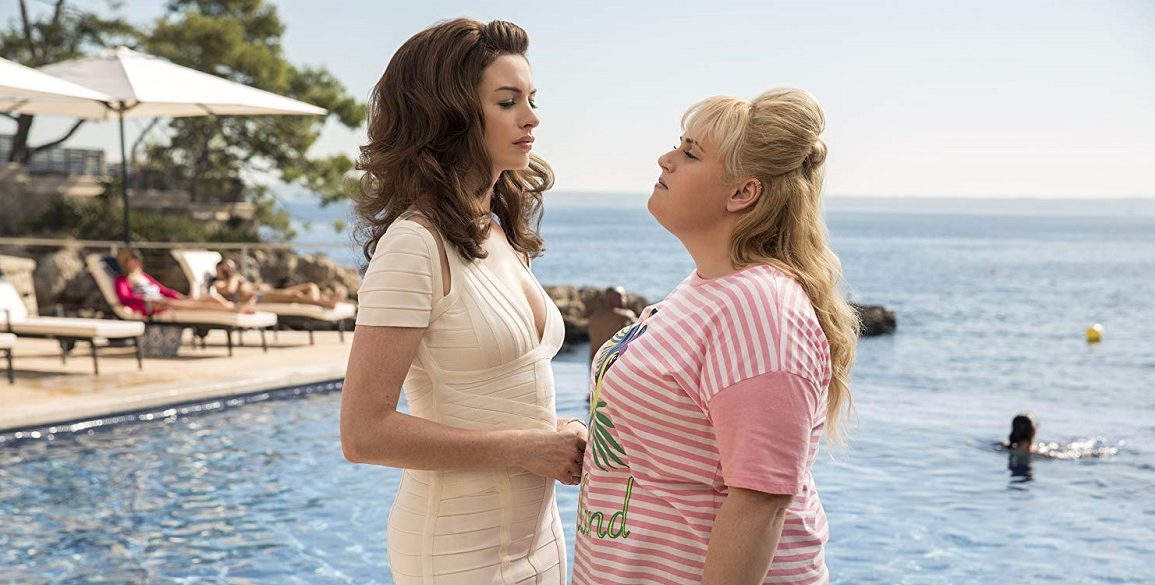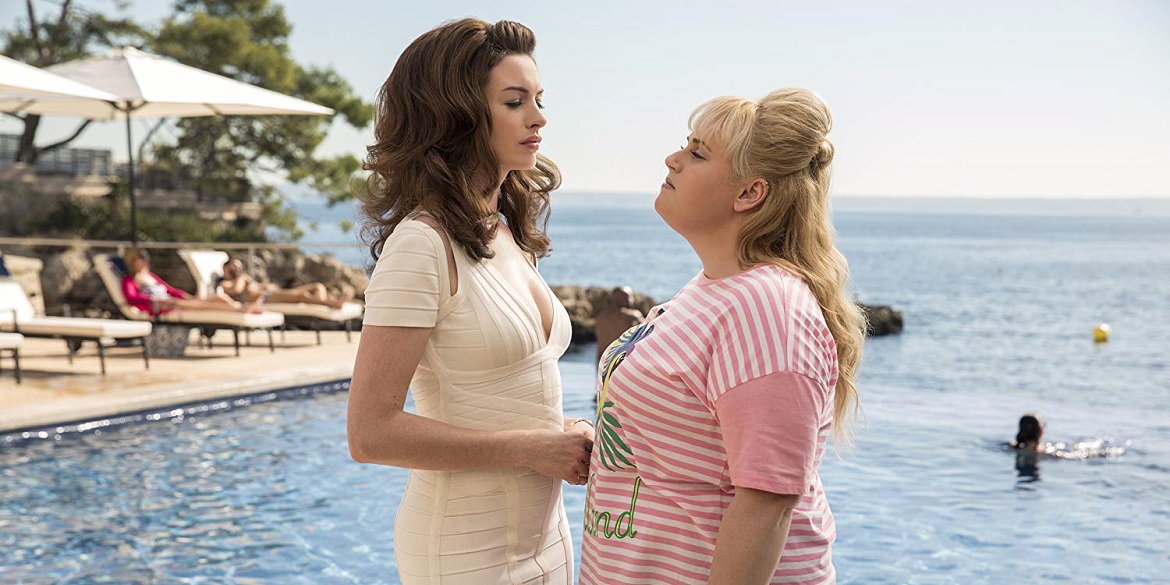In the simplest of terms Chris Addison’s “new” comedy, The Hustle, is the tale of two con artists. One, Penny (Rebel Wilson) is a rough and tumble woman of simple means, scamming guileless men out of their money through an elaborate boob job scam. They’re terrible people, so she’s justified in taking their cash. The other, Josephine (Anne Hathaway), a sophisticated woman of means, aims higher, stealing from rich oafish men, who are visit the seaside city of Beaumont–sur-Mer, located on the French Riviera.
Through happenstance, the women meet, butt heads and eventually decide the town isn’t big enough for the both of them. But how do two enterprising women settle who’s the better grifter? Why with a bet, of course. First person to swindle a man out of $500,000 gets to stay in the city. Whomever loses must leave the city. Their mark? Young tech millionaire Thomas (Alex Sharp), who is so kind and gentle, their choosing him almost seems cruel. Since this is a comedy though, such logical thinking is ill-advised. Should all this rather familiar, it’s likely because you’ve seen 1988’s Dirty Rotten Scoundrels or 1964’s Bedtime Story. Fair warning, if that is the case, you’re best to steer clear of this one, as it barely deviates from those versions. Only ever so slightly.
The Hustle begs the question of what exactly audiences want out of a remake. Do they want a film that stands on its own, using only the basic template of the previous iterations to tell a new story? Should the new film in question essentially be a beat-for-beat retelling of its predecessor? With all the moaning and groaning that often goes on, maybe general audience should be polled, before future projects are undertaken. From how things unfold though, it appears studios believe that rehashes are currently the gold standard. Just toss in a gimmick (gender-swapping the leads) and the whole thing seems shiny and new. Or at least that’s the perception, with what’s put up on the screen, here.

Yes, the argument’s valid that the original (and its remake) still exist. Yes, many people haven’t seen those or simply aren’t interested in exploring cinema’s rich history. For better and worse. If that’s the case though, then why not strive to make something new. Why should a Rebel Wilson and Anne Hathaway led comedy about con artists only be allowed to exist in this format? Both women are box office draws. The only new credited screenwriter, Jac Schaffer, is herself in high demand, with a couple Marvel projects lined up. Letting the world be their oyster, seems only fair, instead of stringently putting barriers on what can and should be made. None of this would be an end-all-be-all issue, if The Hustle was consistently funny or at least more than vaguely compelling.
The problem with casting Rebel Wilson in a big ticket movie, is that you have to cater your script to her marketability, rather than have her augment her style to match the needs of the script. Something pushed even further, when she also happens to be the producer. That’s a dangerous gambit. One that ultimately threatens the film’s very existience. Because at it’s core, The Hustle is a Wilson-driven vehicle. Replete with all the pratfalls, leaden one-liners, non-PC jokes and awkward pauses that fill all her movies. It’ll delight her most ardent fans, while boring everyone else. Which is an utter shame, given how willingly and wonderfully Anne Hathaway throws herself into the part of Josephine.
Hathaway has been on an exciting trajectory these last few years. Since winning an Oscar for Les Misérables she’s taken to searching for projects that allow her to have “fun”. Here she proves just how game she can be, by donning several, escalatingly ridiculous accents and engaging in a fair amount of physical comedy. Hathaway does so with grace and poise of confident lioness, ready to devour anyone who gets in her way. It’s the only thing that manages to keep The Hustle relatively afloat. Because Hathway is busy flexing her comedic chops, while Wilson employs her same old schtick, the two often feel as if they’re in entirely different motion pictures.

Even if Dirty Rotten Scoundrels didn’t exist, The Hustle would still feel like a big mess. Jokes don’t land. The 94 minute run time unfolds as if it were twice that. Yet the biggest detractor in this comedy, is the idea that it’s coming from a place of female empowerment. Sure the women here are headstrong and independent, swindling oodles of cash from unsuspecting men, but it cares little about them as characters. Even going so far as to unfavorably flipping the script two more times, in the film’s closing minutes. Perhaps The Hustle itself is the best con artist out there. It lures people in with the promise of an entertaining good time, only to leave them confused and perplexed by what transpires, while running off into the night with their wallets.




